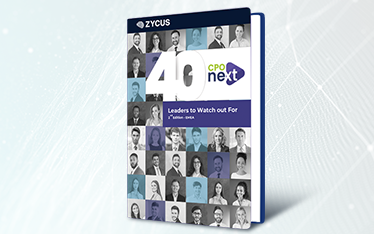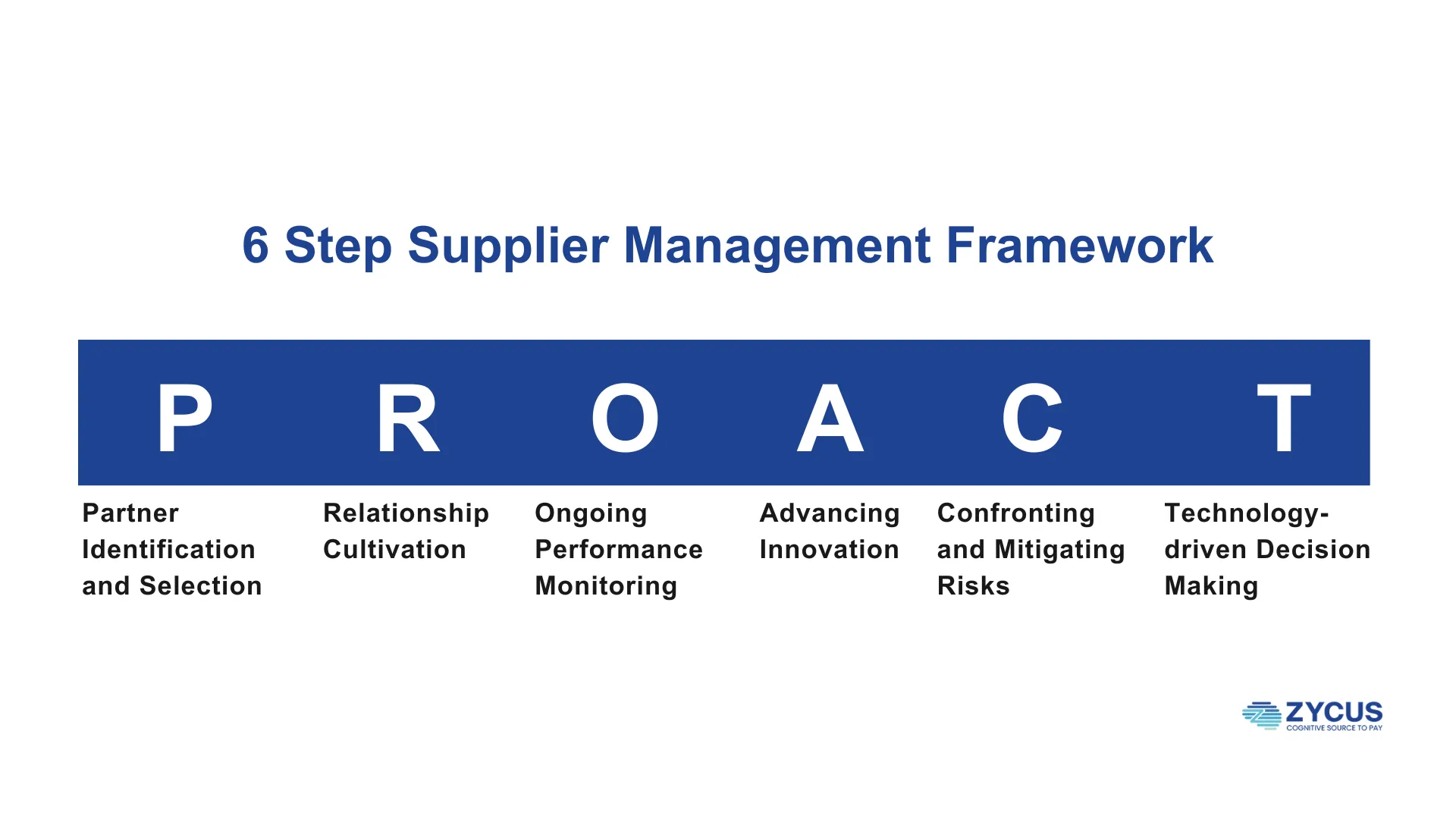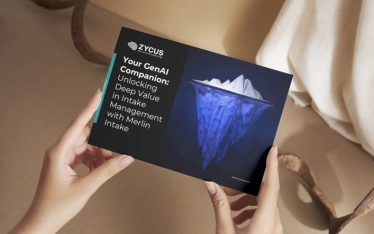Over time, supplier management framework has evolved from merely overseeing a supplier base to analytically understanding and valuing suppliers as essential partners in business operations. In today’s business landscape, Supplier Management encompasses not just managing relationships and performance metrics but also embraces compliant supplier onboarding processes, transparent performance metrics, and robust risk management.
How can you achieve success in supplier management
Success requires more than simply responding to opportunities and problems; it also requires being proactive with your supplier management approach. Building and sustaining excellent supplier relationships is an active, deliberate process that may take your company to new heights rather than being a passive activity. Business that are proactive can reap a myriad of benefits:
1. Risk Mitigation
Businesses have the capability to identify and mitigate potential risks through proactive supplier management, averting the escalation of these risks into critical issues. This proactive supplier risk management approach ensures seamless business operations, even in the presence of unforeseen challenges.
2. Financial Efficiency
Organizations can optimize their financial performance through proactive supplier management. By skillfully negotiating terms with suppliers and identifying opportunities for cost-efficiency, they secure a competitive edge that contributes to a healthier bottom line.
3. Quality Enhancement
Enhanced product and service quality are a direct outcome of proactive supplier collaboration. A proactive approach fosters a culture of continuous improvement, safeguarding and elevating quality standards.
Often, good suppliers are made, not born. Effective supplier management can result in reduced bottom-line costs and increased top line value. The PROACT Framework describes steps, approaches and best practices for improving the capabilities of current suppliers, gaining competitive advantage and achieving sustainable gains.
The PROACT Supplier Management Framework
The PROACT framework comprises six pivotal components that aid enterprises in the establishment and maintenance of fruitful supplier relationships.
P – Partner Identification and Selection
In the initial phase of PROACT, the focus is on pinpointing potential partners and suppliers that align harmoniously with your business goals. After identification, evaluate their capabilities, reputation, and alignment with your organization’s values. Employing a proactive approach at this juncture lays the cornerstone for robust supplier management framework.
R – Relationship Cultivation
At the heart of supplier management lies the nurturing of enduring and robust relationships with chosen partners. Prioritize candid and open communication, trust-building, and collaborative efforts. Explore avenues for joint ventures or co-development initiatives to maximize reciprocal value.
O – Ongoing Performance Monitoring
To ensure the consistent fulfillment of your expectations by selected suppliers, it is prudent to define unambiguous Key Performance Indicators (KPIs) and routinely assess supplier performance against these jointly established benchmarks. This step guarantees the adherence of suppliers to their commitments and their positive contributions to your operational efficiency.
A – Advancing Innovation
In the realm of proactive supplier management, a strong emphasis is placed on promoting innovation within supplier partnerships. Actively partake in collaborative endeavors, exploring novel concepts, innovative technologies, and enhanced processes that confer benefits not only upon our suppliers but also provide us with a competitive edge in the market.
C – Confronting and Mitigating Risks
Identify potential risks associated with your suppliers, encompassing scenarios like supply chain disruptions or challenges regarding regulatory compliance. Develop sturdy strategies for risk mitigation. A proactive stance in risk management serves to preclude probable disruptions.
T – Technology-driven Decision Making
Harness the potential of data analytics and technology solutions, including Supplier Relationship Management (SRM) software, to amass insights and enable informed decisions that optimize supplier relationships. Proactive data scrutiny can unearth prospects for enhancement and expansion.
Implementing The PROACT Framework
Now that you know about the PROACT supplier management framework, we want to supplement it with actionable information you will require to implement it in your organization.
1. Gather Supplier Information and conduct Supplier Assessments
Uncovering the “essence” of your suppliers is a necessity if you want to build strong relationships. Knowledge beyond price and product offerings can include their morality, mission statements, credibility in the media and more – that’s why it’s crucial to have an up-to-date central repository so this information remains current. Automated trackers, alerts and audit trails will keep everything updated for better supplier relations over time.
In a supplier performance management program, it’s essential to identify the higher value and more strategic suppliers – those that are likely to pose the most risks. A robust supplier management framework can also help you identify high-risk suppliers who may be amid geographical, climate, or other supply chain disruptions. This can assist alternative supplier selection and business continuity plans.
2. Establish Clear KPIs & Supplier Agreement on Those KPIs
Collaborate with your suppliers to establish clear and measurable Key Performance Indicators (KPIs). There are two different types of KPIs that are used for supplier risk and performance scoring:
KPIs that gather factual (objective) information about Supplier Risk and Performance:
This type of information can usually be obtained from users and systems within the
organization in the form of management information. It is good practice to be as
structured and consistent as possible in the approach to risk assessment and
performance monitoring:
- Root cause and Non-conformance incidents
- Financial health of suppliers
- Physical location of suppliers and relevant facilities
- Lead time from order
- Product Availability
- Quality standards being met
- Pricing compliance
- Mean time between failure
- Percentage of incoming rejects (delivery accuracy)
- On-time delivery performance against agreed delivery lead times
KPIs that obtain the (subjective) experiences of the buyer while dealing with the Supplier:
Though these too must be as objective as possible, due to human perception involved while measuring experience, these KPIs inevitable are used in real-life situations to capture subjective data:
- Impact of political events and technology change on suppliers
- Reputational risk posed
- Service Quality (against agreed SLAs)
- Relationship/ Account Management
- Customer service response time
- Accessibility and responsiveness of account management
3. Develop Robust Risk Mitigation Strategies
Supplier risk is an important factor to consider when managing the supplier relationships of your company. A supplier may cause significant disruption to operations by failing to deliver goods or services on time, providing products of poor quality, engaging in fraudulent activities, and violating regulations.
Read our report on: Supplier Risk Management Framework: A Comprehensive Approach to Mitigating Supplier Risks
When it comes down to it, there are 4 crucial supplier risk categories that all organizations should be aware of- Financial, Legal, Operational and Reputational.
Supplier risk management strategies
Achieving supply chain efficiency requires careful consideration of supplier risk. Taking proactive measures such as conducting thorough evaluations will ensure you are aware of any risks before they have a chance to impact business continuity.
- Understand your suppliers: Intensify your relationship with suppliers. Knowing the needs of those you work closely with, and taking steps to mitigate any potential risks can be a successful strategy for overcoming unexpected disruptions in supply chains. Zycus’ iRisk provides 360o Supplier Risk & Performance Management.
- Creating a risk-aware culture: Risk-awareness involves more than just protection from the unexpected; it encourages a team to practice proactive risk management. By collaborating on countermeasures and sharing the burden, teams can proactively identify potential risks before they become damaging realities.
- Create a line of defense: Ready your organization for the future by implementing anti-risk policies as part of everyday operations. Ensure greater security with internal training, access controls on sensitive software and double-checking systems – ensuring that you are prepared to face any potential risk head-on.
- Protect against cyber risks: As more sophisticated cyber threats emerge; it is essential to ensure that your organization has the proper digital security measures in place. Training staff in best practices and utilizing risk-averting software can help prevent potential internal and external vulnerabilities from compromising data or operations.
4. Leverage Technology Solutions
Invest in Supplier Relationship Management (SRM) software and other technological solutions to streamline supplier management tasks. Automation can significantly improve efficiency and data accuracy.
Zycus’ solution portfolio encompasses the full spectrum of SRM needs, from e-sourcing and spend management to contract management and supplier management. Zycus’ iSupplier provides a centralized repository to search suppliers, both approved as well as potential suppliers and shortlist them basis certain questions for certain sourcing events. iSupplier helps to manage supplier on-boarding with customized and flexible on-boarding forms and improve compliance and keep supplier data, certificates and other documents updated. This makes supplier information management a very vital tool in understanding the organization’s supplier risks and the nature of suppliers and thus helps in leveraging this understanding to perform better. Supplier repository is a common integration point to other vendor masters and data warehouses.
Zycus Supplier Network (ZSN) is an end-to-end supplier management portal that serves as the single access point for suppliers for document and information exchange.
iRisk is the AI-powered 360o supplier risk management tool that unlocks a competitive advantage over traditional SRM solutions. It consolidates risk data from internal evaluations, external score databases, performance data from ERP, and millions of sources aggregated online. Dynamic AI ensures that the risk score is continually updated, informed by millions of risk sources every day. iRisk also segments suppliers in terms of critical, tactical, commodity, and strategic importance so that CPOs can prioritize the relationships most likely to add immediate and long-term value.
Paving The Way To PROACTive Supplier Management
Supplier management isn’t just something that happens on autopilot; it’s a proactive strategy that demands dedication and flexibility. When you put the PROACT supplier management framework into action, you’re not just managing suppliers; you’re taking your relationships to the next level, unlocking value, and setting your business up for long-term success. You should customize the framework to fit your organization’s unique needs and keep nurturing those supplier relationships. This isn’t just about reducing risks; it’s about grasping opportunities for innovation and growth, ensuring your business thrives in our constantly evolving business world. By actively managing your suppliers, you can transform supplier relationships from transactional to strategic, paving the way for long-term success and sustained growth in an increasingly competitive business environment.
Book a demo today to learn more about supplier management framework.
FAQs
Q1. What is a Supplier Management Framework?
A Supplier Management Framework is a structured approach to managing your relationships with suppliers. It defines the processes, tools, and metrics you use to:
- Select the right suppliers.
- Negotiate effective contracts.
- Monitor supplier performance.
- Minimize risks and improve collaboration.
Q2. What are the benefits of using a Supplier Management Framework?
- Reduced costs: Improved supplier performance can lead to lower prices, fewer errors, and less rework.
- Increased efficiency: Streamlined processes save time and effort.
- Improved risk management: Early identification and mitigation of supplier risks can prevent disruptions and financial losses.
- Enhanced collaboration: Stronger relationships with suppliers lead to better communication and innovation.
Q3. What is the PROACT Supplier Management Framework?
PROACT is a specific Supplier Management Framework developed by Zycus. It emphasizes:
- Proactive supplier engagement: Building strong relationships through open communication and collaboration.
- Data-driven decision making: Using data and analytics to inform supplier selection, performance management, and risk mitigation.
- Continuous improvement: Regularly reviewing and refining your supplier management processes.
Q4. How can PROACT benefit a retailer looking to improve collaboration with its suppliers?
The integrated collaboration platform within PROACT fosters two-way communication and knowledge sharing between retailers and suppliers. This enhances product development, inventory management, and joint marketing initiatives, ultimately leading to increased customer satisfaction and market agility.
Q5. How can PROACT help improve supplier selection for a large manufacturing company?
Zycus’ robust supplier information management system allows centralizing and analyzing various data points like quality control records, financial stability, and environmental responsibility. This data-driven approach empowers the company to identify and onboard the most qualified suppliers aligned with their specific needs. Additionally, advanced eSourcing tools facilitate cost-effective negotiation and contract finalization.
Related Reads
- Blog – Supplier Relationship Management: A Comprehensive Guide
- Blog – Seven Keys to Better Sourcing & Supplier Management
- Zycus Supplier Network Solution
- Download Whitepaper – Supplier Risk And Performance Management: Best Practices For KPI Creation
- Download Whitepaper – Supplier Performance Evaluation for Better Results
- Download Whitepaper – Taking a 360° Approach to Supplier Management
- Blog – Supplier Performance Evaluation – A Quick Checklist
- Blog – Supplier Management–Benefits, Process, & Best Practices
- Press release – Leading American Technology Company partners with Zycus to Automate Sourcing, Contract Management and Supplier Management Processes










